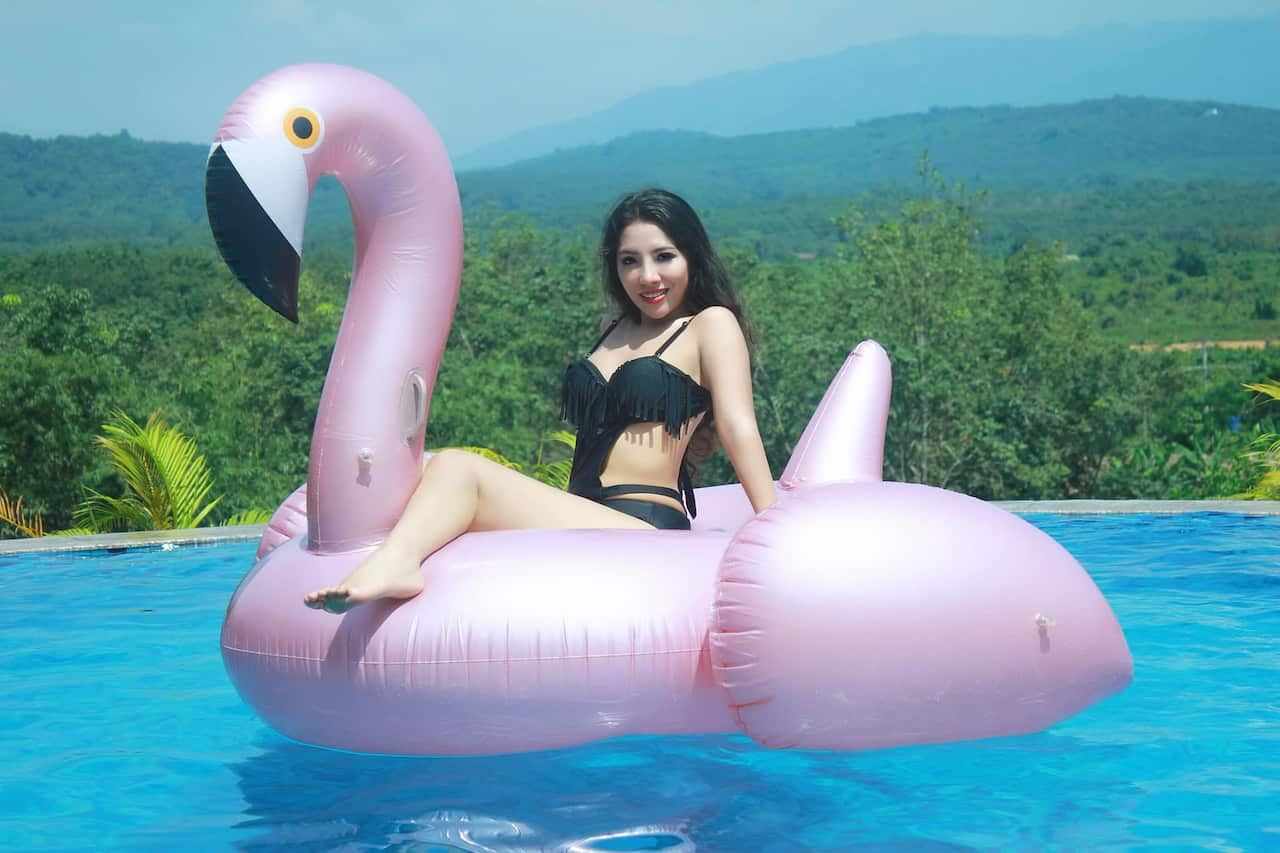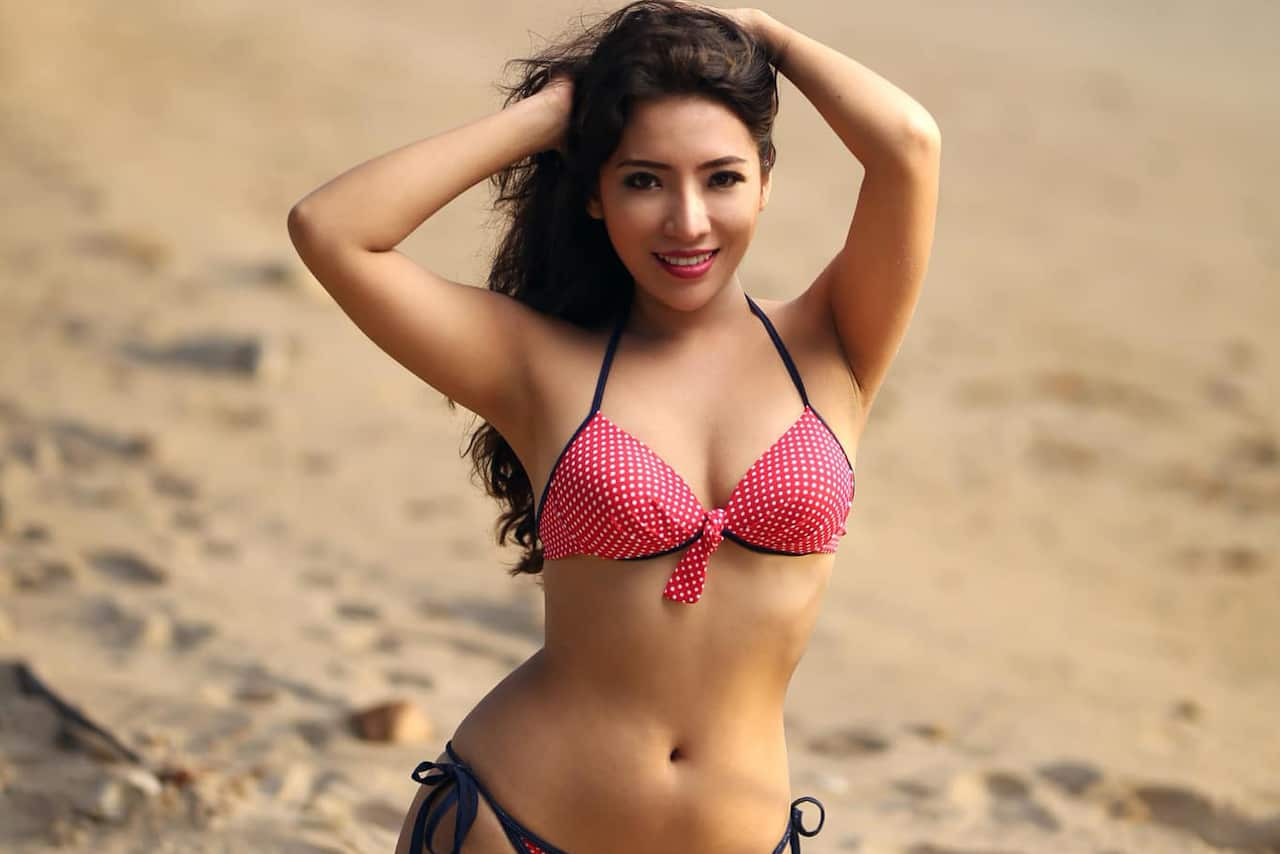A top student at a Myanmar high school, Nang Mwe San fulfilled her parents’ wish and enrolled in medical school. By 22, she was a doctor.
But being a physician was never her dream. What she really wanted to be was a “sexy model.”
After several years of treating patients and working for non-profit medical groups, Dr. Mwe San swapped her scrubs and white coat for bikinis and lingerie. Two years ago, she began shooting commercials and posting racy images of herself on Facebook.
For the staid doctors of the Myanmar Medical Council, seeing so much of the human body — specifically, hers — was more than they could handle.
The council, which oversees the country’s doctors and hospitals, ordered her in January to stop posting such images and to delete them from her page.
She ignored the order, and this month the council informed her that her medical license had been revoked.

“Here there is so much sexism,” Mwe San, now 29, said in an interview. “They don’t want women to have higher positions. And they judge women on what we wear. They don’t even want us to wear trousers.”
The skirmish over her photos has attracted much attention, serving as a distraction for a nation that is waging wars against ethnic groups and is accused of brutal ethnic cleansing of its Muslim Rohingya population in Rakhine state.
“No one is talking about what is happening in Rakhine, but they are all talking about moral public outrage, swimsuit edition,” said David Mathieson, an independent political analyst in Yangon, the country’s largest city. “An attractive young woman in a bikini is immoral, but waging several brutal wars and engaging in massive ethnic cleansing is fully in line with Myanmar values?”
Mwe San’s case has also spotlighted the nation’s deeply ingrained patriarchy and its woefully underfunded, understaffed health care system.
Throughout the country, men hold most positions of power. The medical council, headed by a man, is made up of 11 men and two women.
Myanmar’s civilian leader, Aung San Suu Kyi, who shares power with the military, is a rare female head of government. But the only woman she has named to the Cabinet is herself, as foreign minister.
Sexual harassment and assault are common in Myanmar and usually go unpunished, women say. And when it comes to medical school, young women must have higher grades than men just to gain admittance.
The revocation of Mwe San’s license seems at odds with the needs of the country’s beleaguered health care system. Officials say Myanmar, with a population of 53 million, has only half the doctors it needs.
During decades of military dictatorship, Myanmar neglected its health care system. Suu Kyi has devoted more resources to it, but the result has been mixed.

Many people cannot afford to see a doctor, and some patients say they must pay bribes to get proper treatment at government hospitals. While wealthier people can afford private hospitals, the staff and facilities at government hospitals are woefully inadequate. Some hospitals are so overcrowded that patients sleep on benches in hallways.
Medicine is considered a prestigious occupation, and medical schools attract the country’s best high school students. But many leave the profession, or the country, for better-paying work soon after graduating.
New doctors are paid as little as $160USD a month at government hospitals and twice that at private hospitals. Most want to work in the cities, leaving few doctors to serve towns and villages.
Mwe San, a resident of Yangon, said she earned more as a model than she had as a physician and that she enjoyed the work more.
“It is my passion,” she said. “I feel more comfortable and happy working as a model.”
She said she planned to appeal the ruling and seek a suspension of her license so she could work as a doctor again someday, perhaps as a volunteer, once her modelling career ends.
“I will try my best to keep it because I spent a lot of my time and worked hard to get it,” she said.
On Facebook this week, she posted photos of herself in a yellow bikini and wrote, “Society doesn’t own women’s body. My body, my right.”
The medical council declined to comment on her case.
She said she was summoned by the council in January and ordered not to dress in a way that violated Myanmar tradition.
“They didn’t call me a model,” she said. “Instead, they told me I have a behaviour disorder.”
The council made her sign a statement agreeing to delete her modelling images from Facebook and threatened to revoke her license if she did not comply, she said.
The photos and videos that Mwe San posts mix suggestive images with poses in more traditional outfits. In March, she posed for the cover of a health magazine in modest attire with a stethoscope around her neck and holding her duty coat.
But it does not help her case that someone posted five risqué Snapchat video clips of her elsewhere on Facebook, including three in which she exposed her breasts. She said she made those videos years ago and that they were being circulated without her permission.
She always wore appropriate attire when working as a doctor, she said.
In revoking her license, the council said she violated the January agreement and “traditional Myanmar culture” by continuing to post revealing images.
The council cited a broadly worded rule giving it the power to revoke the license of anyone unable to carry out his or her duties “in accordance with the qualifications of a medical practitioner.”
But Mwe San remains undeterred.
“Whatever I’m facing, I won’t give up my modelling profession,” she said. “I just like to work as a photo model.”
Dateline is an award-winning Australian, international documentary series airing for over 40 years. Each week Dateline scours the globe to bring you a world of daring stories. Read more about Dateline
Have a story or comment? Contact Us

